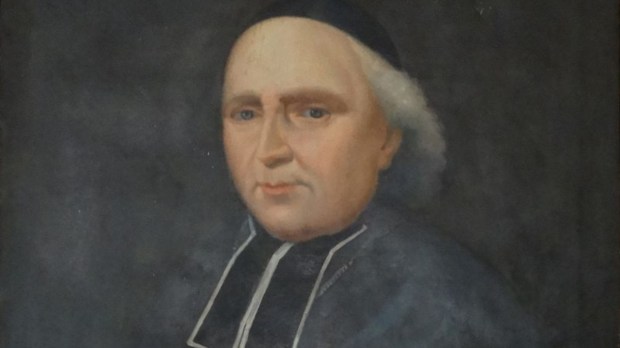You may not know his name, but without realizing it, you’ve probably already heard of him. If you’re a literature buff and have read Victor Hugo’s Les Misérables, or if you’ve seen any of the screen or stage adaptations, you’ll remember Bishop Myriel. He’s the kindly, poor, and charitable prelate who opened his door to the infamous Jean Valjean on his return from the penal colony.
This character is based on a real person. His name is Bishop Charles-François-Melchior Bienvenu de Miollis, and he may soon be beatified! At the end of the plenary assembly of the Episcopal Conference of France, which ended in Lourdes on November 8, they voted to open two causes for beatification: that of Bishop Bienvenu de Miollis and that of Dom Prosper Guéranger.
Bishop de Biollis’ biography
Born on June 19, 1753 in Aix-en-Provence (near Marseille), Bienvenu de Miollis was ordained a priest in Carpentras in 1777 at the age of 24. He began his ministry as curate in Brignoles (Var) and as chaplain to the Ursulines in Aix-en-Provence. He took charge of teaching catechism in the countryside, and looked after the poorest of the poor.
During the French Revolution, he refused to take the oath to the Civil Constitution of the Clergy, and was forced into exile. In 1792, he left France for Rome, where he remained until 1801. He then returned to Aix as curate of the parish of Saint-Sauveur.
Three years later, he became the parish priest of Brignoles, then the bishop of Digne (in southeastern France) in 1805. He remained bishop for 33 years, before resigning for health reasons. After retiring to his sister’s home in Aix, he ended his days as bishop emeritus, dying on June 27, 1843, with a reputation of sanctity. He is buried in the cathedral of St. Jerome in Digne.
A life of service to the poor
Throughout his life, Bishop de Miollis showed his concern for the poor, always striving to humble himself. His pure faith, charity, and humility inspired Victor Hugo to create the character of Charles-François Bienvenu Myriel. It’s even said that the story of the encounter between the good bishop and the convict in Les Misérables is partly true.
In a note on the history of Les Misérables inserted in the 1909 edition of the work, journalist and writer Gustave Simon asserts that the real Jean Valjean was Paul Maurin, a former convict sentenced to five years in prison for stealing bread. Rejected by all who crossed his path, Paul Maurin is said to have found refuge with Bishop Bienvenu de Miollis, who offered him room and board.
The first benefit of opening the cause for the beatification of Bishop Bienvenu de Miollis will be to make him better known — a figure so humble and charitable that he touched the hearts, incognito, of millions of readers.



